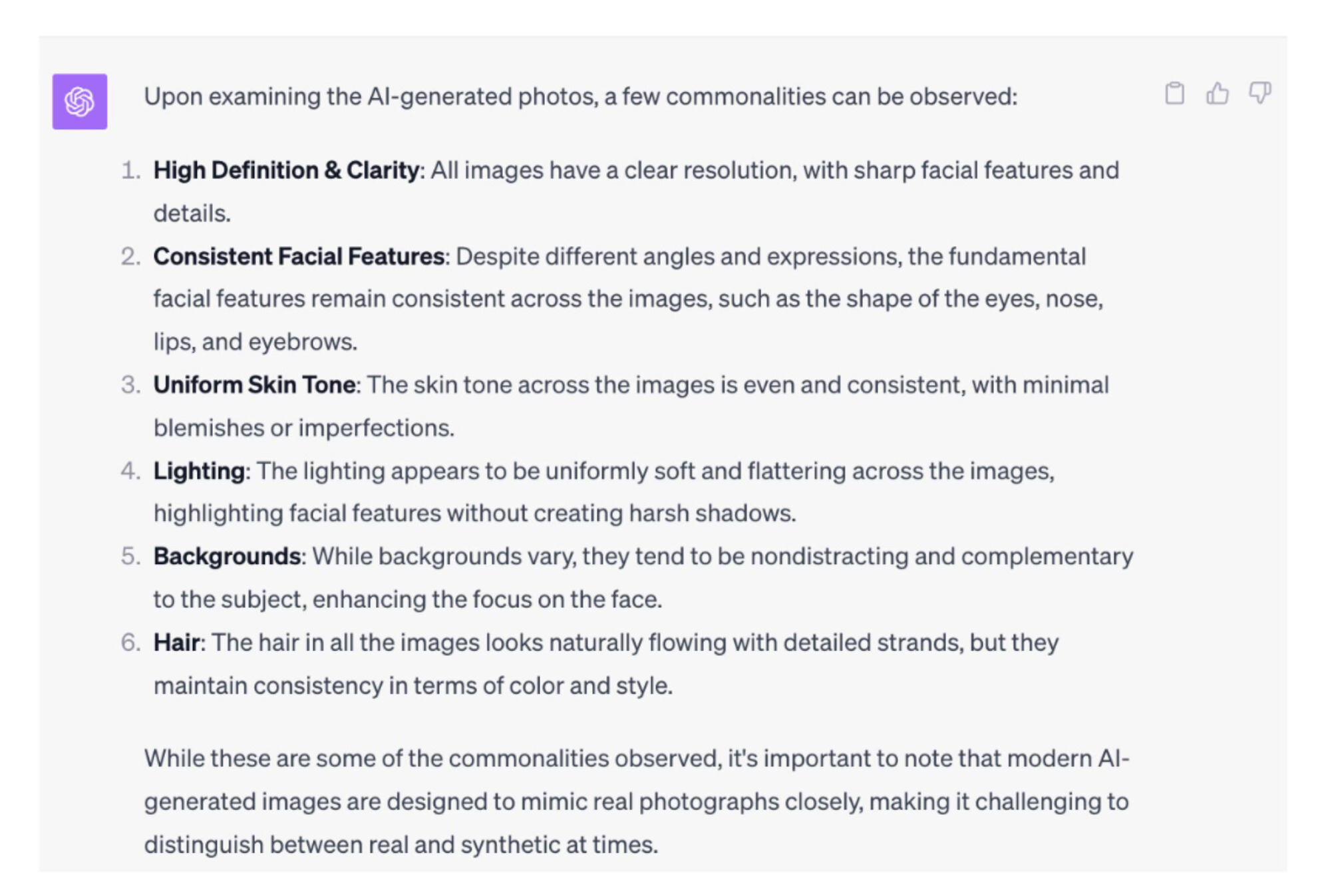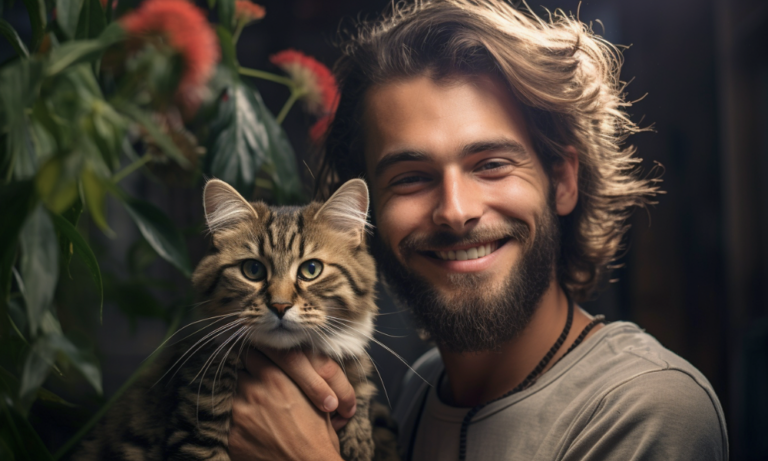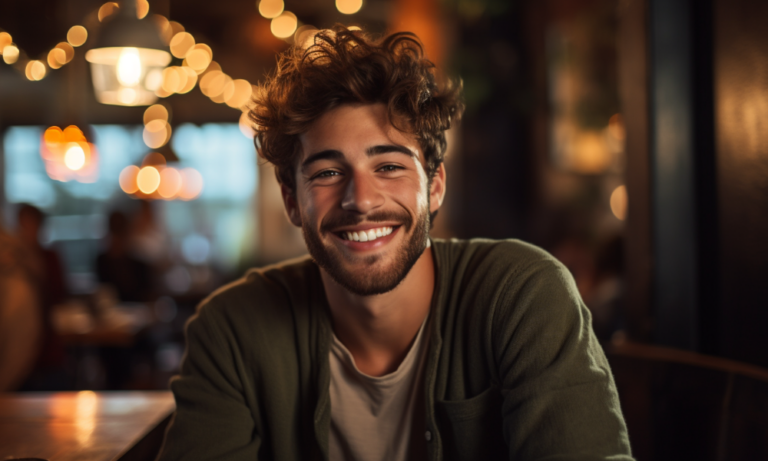With editing apps and AI photo generators, like Lensa, Remini, and Photo AI, our views on what’s real and what’s not are shifting, especially on dating platforms where everyone’s keen to look their best. Some are blessed with good genes, killer selfie skills, or photographer pals, but many rely on these apps, even just for little tweaks. But AI’s surge in the photo realm raises concerns about drifting too far from authenticity.
During Saira’s recent dinner with her friends, the topic moved from AI to how dating app pics often don’t mirror reality. Some discrepancies are obvious, while others, not so much. This sparked an idea: what if Saira added an AI-generated portrait to her dating account? Sure, it’d technically be her, but not quite. Would others spot the difference?
AI photos on dating platforms aren’t novel. An AI tool even crafts images tailor-made for dating apps. There are growing instances of folks identifying such images on others’ profiles. Hinge’s parent firm, Match Group, skirted around commenting on the AI-photo trend on its platforms. Instead, they hinted at Tinder, another of their properties, developing AI tools to aid in profile photo selection — similar to what Bumble offers.
To truly grasp the draw of AI photos on dating profiles, Saira dived right in. To her shock, the AI image was a major hit, dwarfing their genuine pics in popularity.
Enter body dysmorphia
The r/InstagramReality subreddit is one Saira often visit. Here, users juxtapose edited or filtered snaps they’ve discovered online with the real deal. While many alterations are glaring, others require a keen eye to spot.
The volume and extent of these edits are staggering. Body dysmorphic disorder (BDD) is frequently discussed in the subreddit’s comment sections. Evan Rieder, a certified psychiatrist and dermatologist, confirmed BDD’s prevalence.
Rieder stated that 2-3% of folks have BDD, though many cases likely fly under the radar. Victims tend to obsess over perceived flaws, often barely noticeable to others, predominantly concerning their skin, hair, and for men, muscles.
BDD is more than just low self-esteem — it’s a legit condition outlined in the Diagnostic and Statistical Manual of Mental Disorders. Those with BDD often engage in repetitive behaviors or mental acts, such as mirror checks or self-comparisons.
Decades ago, only elite professionals, like Vogue’s art directors, could churn out perfected images. But today, with a slew of apps, anyone can polish away their flaws, giving the public a hyper-idealized version of themselves that might border on the surreal.
Generating AI pics
Saira used the trending Remini app, which previously made waves with AI snaps of hypothetical future offspring. Currently, it’s a hot tool for generating ’90s-style yearbook images. Given its realistic outputs and array of customization options, it was her choice over apps like Lensa.
After a week’s trial sign-up, uploading eight photos, and selecting an AI “model image,” Saira got to work. It took several tries to craft photos that looked natural. She finally settled on four AI images for their Hinge profile. Over a month, Saira rotated these with their genuine images, keeping tabs on the likes and comments.
The hard truth
Saira’s AI photos consistently outperformed their real ones. If users spotted the AI oddities, like vanishing ears or oddly shaped irises, they kept mum.
“It was unsettling seeing these generic images overshadow the genuine snapshots that captured their essence”. Although her profile’s written parts garnered ample likes and comments, one can’t dismiss the dating profile’s visual aspect.
ChatGPT aptly expressed why the AI photos likely struck a chord. Discerning AI from real is tricky, but AI images often flaunt impeccable symmetry and flawless features.

“Dealing with the idealized images prevalent today, juxtaposed against one’s perceived flaws, is a struggle I’ve faced since younger days. Various factors, from reading women’s magazines at a young age to racial bullying and familial criticisms, played a role”.
Repeated exposure affects perception, as Rieder highlighted via the Mere Exposure Effect. Consuming content repeatedly can skew one’s sense of beauty. This effect can be seen in aesthetics, where often unattainable beauty standards are normalized.
Embracing unedited, natural bodies is gaining traction in the media, a move in the right direction. Saira understands the allure of AI photos but strongly advises against using them on social media or dating apps.
“Self-love is a journey, one I’m still traversing. In a world rife with filters, edits, and AI, staying self-aware is crucial”.
Having removed the AI pics from Saira’s dating account, every notification she receives now sparks joy. She knows it’s for the real her — no filters, edits, or AI.




